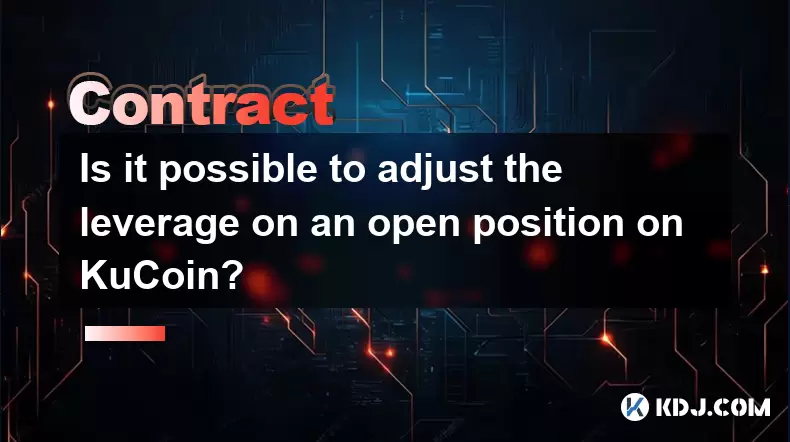-
 Bitcoin
Bitcoin $118600
-2.59% -
 Ethereum
Ethereum $4282
-0.42% -
 XRP
XRP $3.129
-4.21% -
 Tether USDt
Tether USDt $0.0000
0.01% -
 BNB
BNB $805.4
-1.80% -
 Solana
Solana $174.3
-5.77% -
 USDC
USDC $0.9998
-0.01% -
 Dogecoin
Dogecoin $0.2230
-6.33% -
 TRON
TRON $0.3466
1.70% -
 Cardano
Cardano $0.7745
-5.73% -
 Chainlink
Chainlink $21.37
-3.53% -
 Hyperliquid
Hyperliquid $42.93
-7.25% -
 Stellar
Stellar $0.4324
-4.94% -
 Sui
Sui $3.660
-7.17% -
 Bitcoin Cash
Bitcoin Cash $591.6
2.72% -
 Hedera
Hedera $0.2467
-7.04% -
 Ethena USDe
Ethena USDe $1.001
0.00% -
 Avalanche
Avalanche $22.92
-6.14% -
 Litecoin
Litecoin $118.8
-3.79% -
 Toncoin
Toncoin $3.378
-0.46% -
 UNUS SED LEO
UNUS SED LEO $9.011
-1.15% -
 Shiba Inu
Shiba Inu $0.00001294
-5.81% -
 Uniswap
Uniswap $11.24
0.53% -
 Polkadot
Polkadot $3.870
-6.16% -
 Cronos
Cronos $0.1662
-1.68% -
 Dai
Dai $1.000
0.02% -
 Ethena
Ethena $0.7915
-5.62% -
 Bitget Token
Bitget Token $4.414
-1.65% -
 Monero
Monero $259.3
-3.85% -
 Pepe
Pepe $0.00001120
-8.29%
What is digital currency contract leverage trading?
Digital currency contract leverage trading, a high-risk strategy that allows traders to amplify profits and losses through borrowed funds, requires careful considerations such as choosing a reputable broker, having a trading strategy, and fully understanding the potential risks.
Dec 16, 2024 at 10:45 am

What is Digital Currency Contract Leverage Trading?
Digital currency contract leverage trading is a type of trading that allows traders to use borrowed funds to increase their potential profits. This can be a very risky strategy, but it can also be very rewarding if done correctly.
There are a few things to keep in mind when using leverage in digital currency trading. First, it is important to understand that leverage can amplify both your profits and your losses. This means that you could lose more money than you originally invested if the market moves against you.
Second, it is important to choose a reputable broker that offers leverage trading. Not all brokers are created equal, and some may not be able to provide you with the best possible experience.
Finally, it is important to have a sound trading strategy before you start using leverage. This will help you to minimize your risk and maximize your chances of success.
How to Use Leverage in Digital Currency Trading?
If you are new to digital currency trading, it is important to start by learning how to use leverage correctly. Here are a few steps to get you started:
- Choose a reputable broker: The first step is to choose a reputable broker that offers leverage trading. There are a number of different brokers to choose from, so it is important to do your research and find one that is right for you.
- Open an account: Once you have chosen a broker, you will need to open an account. This usually involves providing some basic information, such as your name, address, and email address.
- Fund your account: Once you have opened an account, you will need to fund it with enough money to cover your initial investment and any potential losses.
- Choose a trading pair: The next step is to choose a trading pair. This is the pair of currencies that you will be trading. For example, you could choose to trade Bitcoin against Ethereum.
- Set your leverage: Once you have chosen a trading pair, you will need to set your leverage. This is the amount of borrowed funds that you will be using to increase your potential profits.
- Submit your order: Once you have set your leverage, you can submit your order. This will tell the broker that you want to buy or sell the specified amount of cryptocurrency.
- Monitor your position: Once you have submitted your order, it is important to monitor your position. This will help you to identify any potential risks and make adjustments as needed.
Risks of Using Leverage in Digital Currency Trading
There are a number of risks associated with using leverage in digital currency trading. These risks include:
- The potential for losses: Leverage can magnify both your profits and your losses. This means that you could lose more money than you originally invested if the market moves against you.
- The risk of liquidation: If your losses exceed your initial investment, your broker may liquidate your position. This means that you will be forced to sell your cryptocurrency at a loss.
- The risk of margin calls: If your losses exceed a certain threshold, your broker may issue you a margin call. This means that you will need to deposit more money into your account or your position will be liquidated.
Benefits of Using Leverage in Digital Currency Trading
There are also a number of benefits to using leverage in digital currency trading. These benefits include:
- The potential for increased profits: Leverage can amplify your potential profits. This means that you could make more money than you would have if you were not using leverage.
- The ability to trade larger positions: Leverage allows you to trade larger positions than you would be able to if you were not using leverage. This can give you the opportunity to make more money from each trade.
- The ability to hedge your positions: Leverage can be used to hedge your positions. This can help to reduce your risk and protect your profits.
Conclusion
Leverage can be a powerful tool for digital currency traders. However, it is important to understand the risks involved before using leverage. If you are new to digital currency trading, it is important to start by learning how to use leverage correctly.
Disclaimer:info@kdj.com
The information provided is not trading advice. kdj.com does not assume any responsibility for any investments made based on the information provided in this article. Cryptocurrencies are highly volatile and it is highly recommended that you invest with caution after thorough research!
If you believe that the content used on this website infringes your copyright, please contact us immediately (info@kdj.com) and we will delete it promptly.
- Dogecoin, Presale, Surge: Riding the Meme Coin Wave
- 2025-08-12 11:10:12
- Dogecoin, Tron, and the ROI Reality Check: What's a Crypto Investor to Do?
- 2025-08-12 11:15:12
- Ethereum Layer-2 Scaling Competition Heats Up as ETH Breaks $4K
- 2025-08-12 10:30:12
- China Regulation, Stablecoins, and BNB Presale: Navigating the Crypto Landscape
- 2025-08-12 11:30:12
- Meme Coins, Investment, and Token Burns: What's Hot in 2025?
- 2025-08-12 10:30:12
- China's National Security Alarm Bells Ring Over Worldcoin's Iris Scans
- 2025-08-12 11:35:12
Related knowledge

Is it possible to adjust the leverage on an open position on KuCoin?
Aug 09,2025 at 08:21pm
Understanding Leverage in KuCoin Futures TradingLeverage in KuCoin Futures allows traders to amplify their exposure to price movements by borrowing fu...

What cryptocurrencies are supported as collateral on KuCoin Futures?
Aug 11,2025 at 04:21am
Overview of KuCoin Futures and Collateral MechanismKuCoin Futures is a derivatives trading platform that allows users to trade perpetual and delivery ...

What is the difference between realized and unrealized PNL on KuCoin?
Aug 09,2025 at 01:49am
Understanding Realized and Unrealized PNL on KuCoinWhen trading on KuCoin, especially in futures and perpetual contracts, understanding the distinctio...

How does KuCoin Futures compare against Binance Futures in terms of features?
Aug 09,2025 at 03:22am
Trading Interface and User ExperienceThe trading interface is a critical component when comparing KuCoin Futures and Binance Futures, as it directly i...

How do funding fees on KuCoin Futures affect my overall profit?
Aug 09,2025 at 08:22am
Understanding Funding Fees on KuCoin FuturesFunding fees on KuCoin Futures are periodic payments exchanged between long and short position holders to ...

What is the distinction between mark price and last price on KuCoin?
Aug 08,2025 at 01:58pm
Understanding the Basics of Price in Cryptocurrency TradingIn cryptocurrency exchanges like KuCoin, two key price indicators frequently appear on trad...

Is it possible to adjust the leverage on an open position on KuCoin?
Aug 09,2025 at 08:21pm
Understanding Leverage in KuCoin Futures TradingLeverage in KuCoin Futures allows traders to amplify their exposure to price movements by borrowing fu...

What cryptocurrencies are supported as collateral on KuCoin Futures?
Aug 11,2025 at 04:21am
Overview of KuCoin Futures and Collateral MechanismKuCoin Futures is a derivatives trading platform that allows users to trade perpetual and delivery ...

What is the difference between realized and unrealized PNL on KuCoin?
Aug 09,2025 at 01:49am
Understanding Realized and Unrealized PNL on KuCoinWhen trading on KuCoin, especially in futures and perpetual contracts, understanding the distinctio...

How does KuCoin Futures compare against Binance Futures in terms of features?
Aug 09,2025 at 03:22am
Trading Interface and User ExperienceThe trading interface is a critical component when comparing KuCoin Futures and Binance Futures, as it directly i...

How do funding fees on KuCoin Futures affect my overall profit?
Aug 09,2025 at 08:22am
Understanding Funding Fees on KuCoin FuturesFunding fees on KuCoin Futures are periodic payments exchanged between long and short position holders to ...

What is the distinction between mark price and last price on KuCoin?
Aug 08,2025 at 01:58pm
Understanding the Basics of Price in Cryptocurrency TradingIn cryptocurrency exchanges like KuCoin, two key price indicators frequently appear on trad...
See all articles

























































































